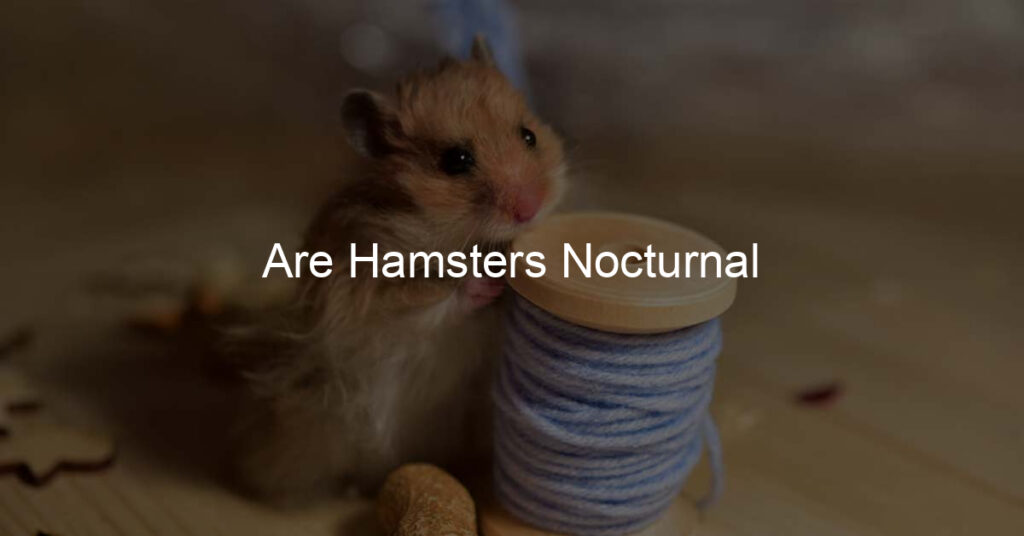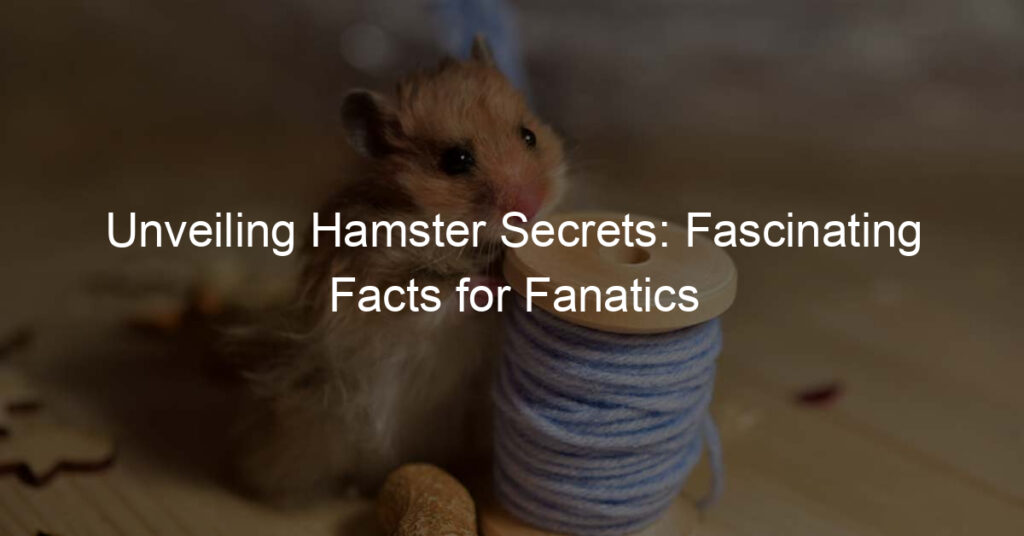Most people are familiar with the image of a hamster in a cage running on a wheel – but what they may not know is that these furry little creatures are actually nocturnal. That means they’re most active at night, while you’re asleep!
So, if you’re thinking about getting a hamster as a pet, be prepared for some late-night activity. But don’t worry, it’s all part of the fun of having one of these unique pets.
Are hamsters active at night?
Hamsters are small but mighty! They are known for being active during the nighttime, so you might hear your little fur-ball companion running around its cage in the wee hours of the morning. While hamsters don’t run as much as they sleep at nighttime, they can still be quite energetic when up and about. They usually like to explore their cages and rummage through whatever toys or snacks you give them.
Plus, with those adorable squeaks and occasional bursts of speed, it’s hard to deny how entertaining this nocturnal creature can be! So, if you’re looking for a pet that isn’t too demanding yet still brings plenty of joy and entertainment to your life, consider getting a hamster! They make excellent companions for those who are willing to get up late and enjoy the special bond between humans and hamsters.
Are hamsters noisy at night?
Hamsters are generally considered to be relatively quiet animals, although some can be surprisingly vocal. Whether a hamster is noisy at night or not depends largely on its personality and level of activity. Nocturnal breeds like the Roborovski hamster are usually more active and make more noise than those that prefer to sleep during the night, but there are exceptions.
A large part of whether your hamster will remain quiet at night comes down to their environment – if they feel safe, comfortable, and relaxed in its cage then they’re less likely to become restless and vocalize. With proper attention and care, it’s possible to prevent excessive noise from hamsters at night.
Can you train a hamster to not be nocturnal?
Training a hamster to not be nocturnal can be a tricky but rewarding task. After all, hamsters are hardwired to be active mostly at night and sleep during the day. To make sure that your hamster isn’t just skirting around your training attempts, take it slowly. Start by introducing more light into its habitat during the evening hours and giving it plenty of activities that could naturally keep it awake. An interactive toy or a food puzzle can do wonders for keeping your pet entertained at night.
Gradually increase the length of time that the lights stay on until you get a rhythm that works for both you and your pet. A predictable schedule filled with playtime or grooming sessions will eventually lead to them sleeping during an increasingly longer day period, though you may need some patience before it happens!
What hamsters are not nocturnal
It may surprise some to learn that hamsters are not nocturnal. Contrary to popular belief, hamsters actually have crepuscular habits, meaning they are most active during the twilight hours of dawn and dusk. Generally speaking, this behavior is a result of their wild instincts kicking in — when they adapted to captivity, they transferred these natural behaviors of burrowing in bedding material during the day or nighttime to evade predation. As a pet owner, it can be quite entertaining (and convenient!) when your cuddly companion greets you with plenty of energy and enthusiasm each morning!
Bringing it All Together: Are Hamsters Nocturnal?
All in all, knowing the basics of a hamster’s sleep-wake cycle, noise level, and ability to be trained is essential for providing your pet with the best care. In their natural habitat, hamsters would be primarily active during the night, but there are some breeds that have adapted to living on a primarily diurnal schedule such as Syrian hamsters or Chinese hamsters. By providing a comfortable environment and plenty of activities, owners can ensure their pet gets the rest and stimulation they need to thrive.
You can also train your hamsters out of their nocturnal habits so that you don’t have to worry about constant noise interrupting your sleep. Assuming proper nutrition and care, a happy hamster can easily become an adored family member who adds joy and energy to any home. No matter what kind of hamster you have, understanding its needs is essential for creating a happy and healthy home environment that both you and your pet can enjoy! With proper care, hamsters can make wonderful companions who bring plenty of joy into our lives.








